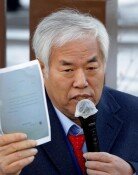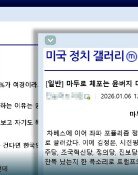[Editorial] System Of Private Tutor Registration Is Extreme
[Editorial] System Of Private Tutor Registration Is Extreme
Posted August. 04, 2001 09:24,
To receive supplementary study at home is something to be encouraged, but not something to be punished. The constitutional court decided that the standardized ban on private tutoring was an excessive infringement of people`s basic rights, such as rights to educate one`s own children. The problem is so-called entrepreneurial style of private tutoring, which is extremely expensive, and the constitutional court also concluded that the high-price private tutoring could be strictly controlled.
Ministry of Education and Human Resources (MEHR) legislated an enforcement ordinance that obligates the registration of private tutors, not students, to eliminate the high-price private tutoring, and carried out the enforcement. However, the result of registration for one month was low. The high-price private tutors disregarded the registration and the most of the registered tutors were receiving small amount of 50,000-200,000 won per month.
Private tutors must have struggled between two options. If they are caught for the first time, unregistered tutors have to pay 1 million of penalty, 2 million of penalty for the second time, and 3 million of penalty or under one year of imprisonment for the third time. Depending on the case, they are subject to the tax investigation. If they are to register, the procedure is cumbersome, their private lives are exposed, and the burdens of income tax, the national pension insurance premium, and health insurance premium follow. As the registration result illustrates, high-price private tutors were left undetected, while tutors, receiving small amount, registered.
Although the government used a method of registration of all the tutors because it was difficult to clarify the standard of the high-price tutoring, the government should not inflict inconvenience and suffering to those who work within the boundary of constitution in order to crackdown exceptional cases, such as the high-price tutoring.
Clarification of the standard of the high-price tutoring is the first thing that should be settled. Administrative difficulties are anticipated because the standard of `high-price` differs depending on the income bracket and region. However, it is problematic to restrict such activities like tutoring, which are principally allowed and are guaranteed by the basic rights, for the sake of administrative convenience.
Although the government plans to launch tax investigation on unregistered tutors, who are offering the high-price tutoring, it is like drawing the sword at a mosquito. It is not desirable to misuse the government`s rights of taxation as a means to punish. Tax investigation can never be a solution, rather, it can create a negative side effect of making people afraid of paying taxes. The government`s efforts to crackdown the high-price tutoring, which exerts a bad influence on society, is deeply understandable. However, the government should think about whether everything can be changed and restricted through regulations and punishment. The fundamental solution is to establish the public education system and the college entrance system, which do not require the private tutoring, instead of a crackdown of private tutoring as a temporary expedient.



![[속보]윤석열 사형 구형…내란특검 “전두환보다 엄정히 단죄해야”](https://dimg.donga.com/c/138/175/90/1/wps/NEWS/IMAGE/2026/01/13/133151283.1.jpg)



